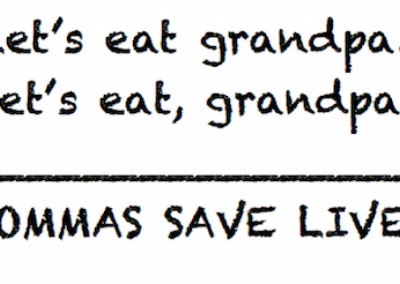By Kallie Hatfield
Writing anything from a short story to a magazine article or a book can be notoriously difficult. At times, you’ll feel truly motivated to write. Ideas flow smoothly from your fingertips and inspiration feels endless.
But then, when you least expect it, you slam into a wall.
Writer’s block is common. It’s an often-cited excuse for writers who are struggling to start or continue a project. Extended writer’s block—anything that continues for more than a few days or a week—is especially discouraging and difficult to work through. The inability to do what you love to do creates anxiety that grows until it feels like an insurmountable wall between you and your work. If you happen to have a deadline, the time crunch only adds to your stress.
Luckily, there are a number of ways to rediscover the ideas and inspiration you need to get your creative juices flowing again.
1. Just Write
Do your best to cast aside any thoughts about the project that has you blocked and set a timer for five or ten minutes. Sit in front of your keyboard (or pick up your pen) and start writing. Write anything. Spill whatever thoughts run through your head onto the page or copy a newspaper article if you must. Whatever lands on the page doesn’t need to make sense. It doesn’t have to be fancy, grammatically correct, or even logical. The process of writing creates movement, and movement creates momentum. You might be surprised at how quickly solid ideas begin to flow again.
2. Keep a Journal
In a similar vein, journaling is a good way to keep writing when you hit a wall. Journal entries are easier to write because they derive their inspiration from daily life which is filled with endless subject matter. Introspection gained through journaling often stimulates new ideas to fuel your manuscript—from character emotion and motivation for a novel to new insights about a nonfiction project. Journaling is highly recommended, even if you aren’t feeling blocked!
3. Get Your Blood Flowing
Let’s be honest, writing isn’t a physically strenuous activity. Sitting for extended periods drains the brain and makes you tired and stiff. When this happens, get up and move. Exercise increases your heart rate which pumps more oxygen into the brain. It might be the spark you need to reinvigorate your writing. Get up and move around several times a day—and don’t forget to go outdoors for some fresh air. It will improve your learning and memory power, and it could even prevent writer’s block.
4. Change How You Write
There are times when the monotony of typing in the same font and in the same style saps your creativity. When this happens, try changing the format surrounding your writing. This could be as easy as changing the page color or font. (But don’t forget to use double-spaced, Times New Roman 12 point for manuscript submission!) Or, instead of typing, try using pen and paper. Scientific studies show your brain is more active when handwriting than when using a keyboard, and it enhances creativity. You might jot your thoughts on notecards and put them in order on the table or floor. When you’re finished, type your notes into your computer. That process may spark even more ideas.
5. Tell Your Story to Others
Software engineers use a method called rubber duck debugging to debug code. It’s based on the habit some programmers have of carrying around rubber ducks for problem solving. When something goes awry, they describe the problem to the duck, line by line. Doing so often helps them find out where they went wrong. The same method is useful when writer’s block strikes. Describe the story you are trying to tell to a rubber duck, a stuffed animal, a trusted friend, or even a pet. Go over every piece of information shared, or, if you’re writing fiction, every character, setting, and plot device utilized thus far. Talk about your intentions and the topics or plot points you intend to add. Speaking your intentions out loud will help you figure out where you are stuck and why— and give you more insight into your manuscript as a whole.
6. Read
If you are a writer, chances are good that you are also a reader. Sometimes taking a break from your own writing to read someone else’s recalibrates your brain to creative mode. An important note: when using this method, you might not want to read a novel. Novels keep readers occupied for extended periods of time and often linger long after closing the cover—a potential distraction from your own writing rather than a solution to your stalemate. Instead, try picking up poetry, a short story anthology, or even a magazine. Reading may be the shovel you need to dig your way out of the writer’s block hole.
7. Edit Another Project
Well-known author Stephen King described his editing timeline in his memoir On Writing. Once he has finished a work, he puts it aside for a set period of time. When he returns, he sees it through fresh eyes. If you’re blocked, consider setting your project aside to gain some perspective. Try editing previous work for a break from your current project while remaining productive. Because editing requires significant attention to detail as well as deep understanding of the overall structure and flow, it might take your focus off your current project, allowing you to view it with a fresh perspective when you return.
8. Read a Completed Manuscript
Reading the same thing repeatedly tends to become repetitious and boring, and perhaps even convinces you that you don’t know what you’re doing. Disenchantment with your own writing is a major cause of writer’s block. So, divert your attention to something you previously finished and polished. Absorb the impact of the final product. Experiencing a polished example of your own writing with approval is both encouraging and therapeutic.
9. One Piece at a Time
Facing the overall scope of a writing project can be overwhelming—prime fodder for writer’s block! When that stalled sensation strikes, it’s easy to make the familiar excuse, “I just don’t have the time to write anymore.” Try focusing on your manuscript in pieces, like building a puzzle. That might mean tackling one scene at a time and then piecing them together later. Or it could mean setting a minimum—and realistic—word count for each writing session and doing your best to achieve it. Setting aside a specific time each day for writing helps too. It doesn’t matter whether it’s immediately after rising during your lunch break, or just before you go to sleep—just be consistent. If you show up regularly and attempt to write a little each day, you’ll reach the finish line. Word by word, line by line, your manuscript will take shape faster than you might expect.
10. Take a Break
The most common solution to crushing writer’s block is taking time off writing. However, be cognizant of what’s going on in your life. Writer’s block is often a symptom of larger challenges. If it’s sparked by depression, anxiety, or other challenges, getting over it is harder. So, use your break wisely. Take care of yourself. Talk to friends, family, or other people you trust, enjoy some self-care days, and focus on the little joys in life. (This is where journaling comes in handy!) When you’re ready to face the screen again, sit down and just write. As noted in Tip #1, what you write doesn’t need to be impressive. Just get the words—any words—rolling.
Writer’s block is common. Almost every writer experiences it at some point. It isn’t fun, and it’s often discouraging or even scary. Extended writer’s block is especially tough. Instead of dwelling on the potential negative impact, try a different approach. Remind yourself that writer’s block doesn’t have to last forever. These ten tips can help you keep writing—even when words don’t flow easily.





